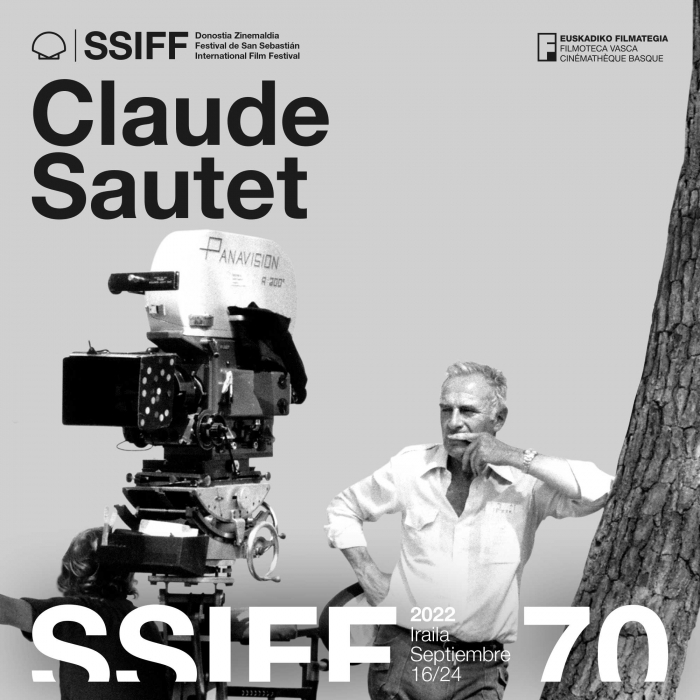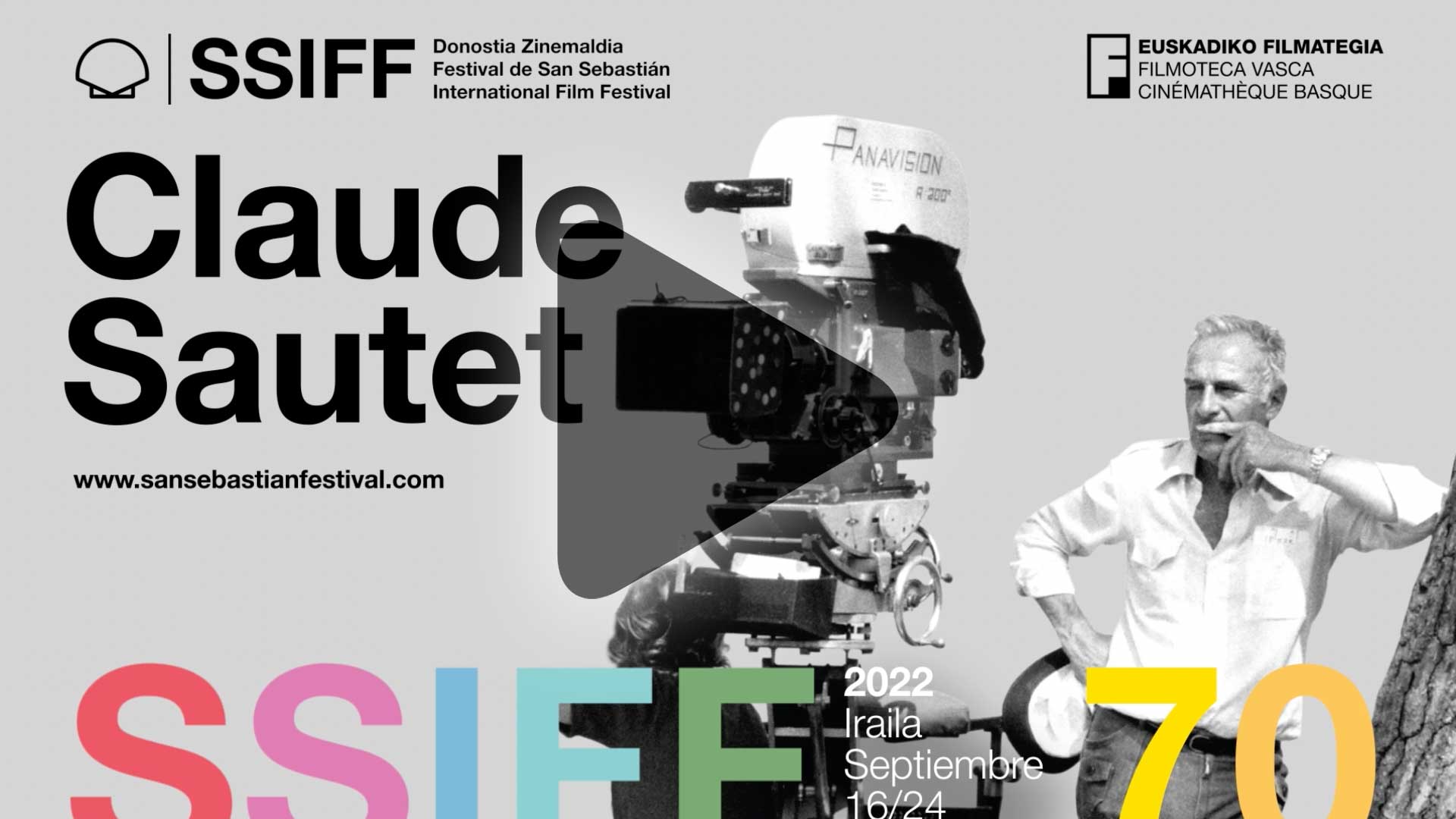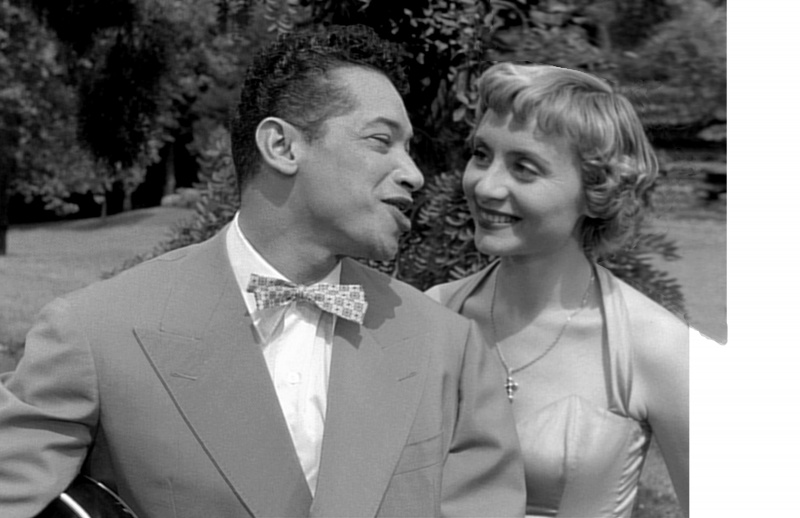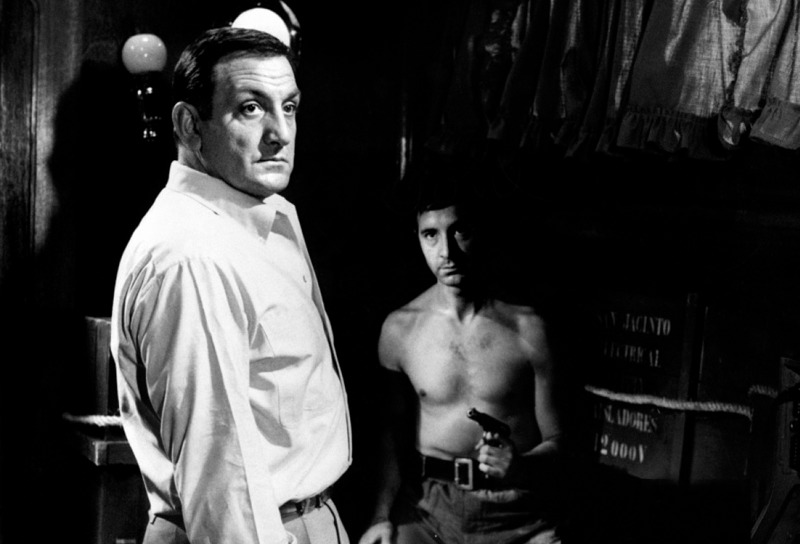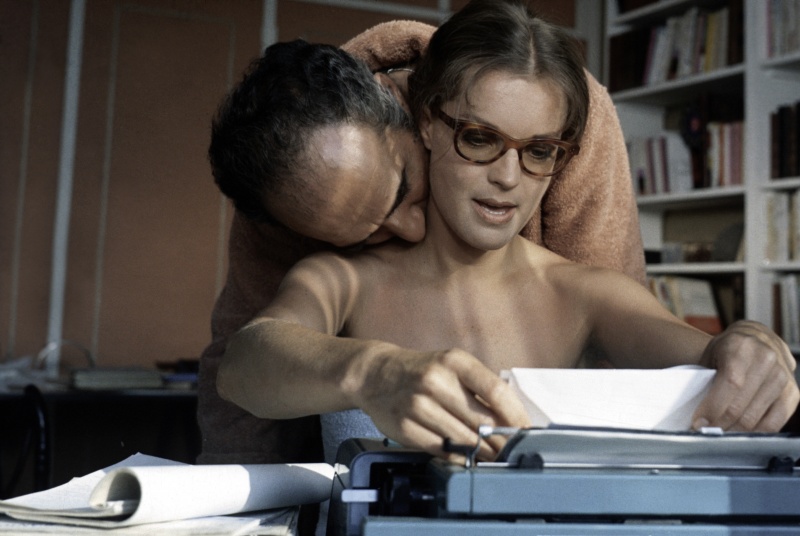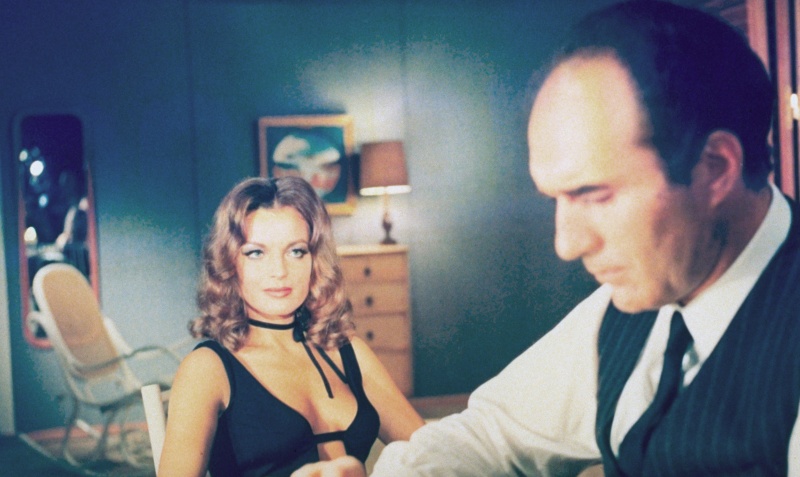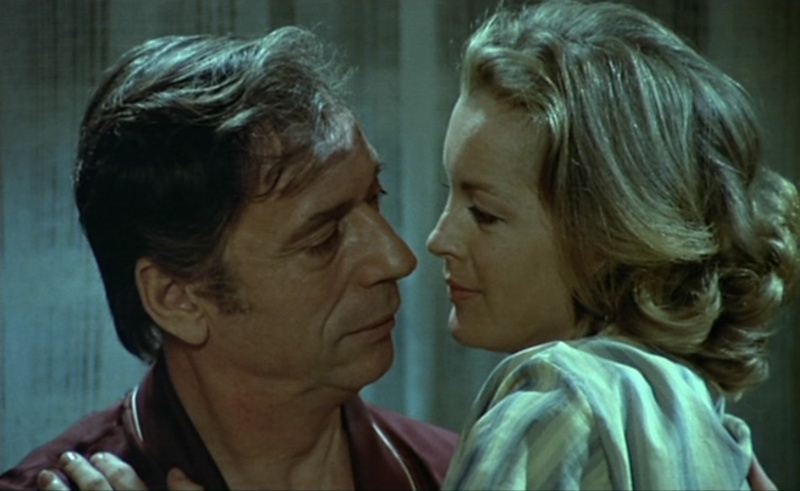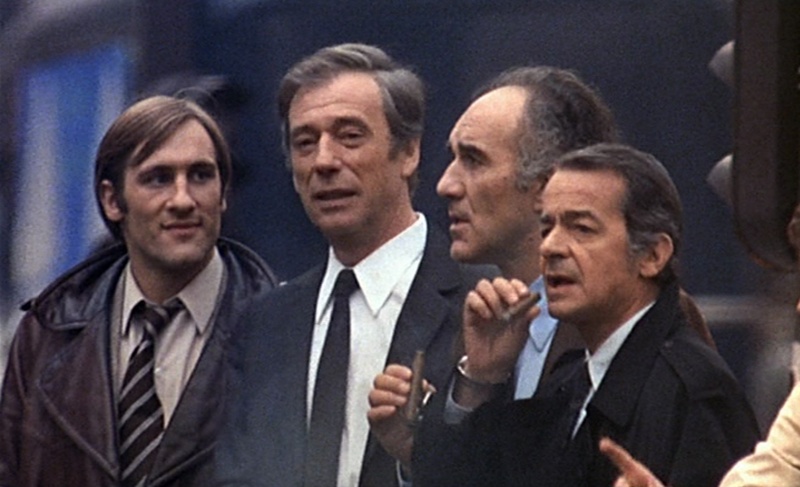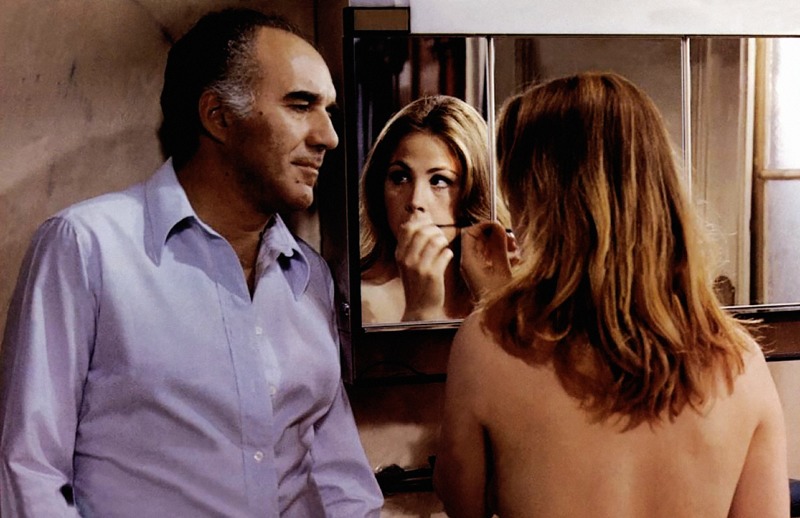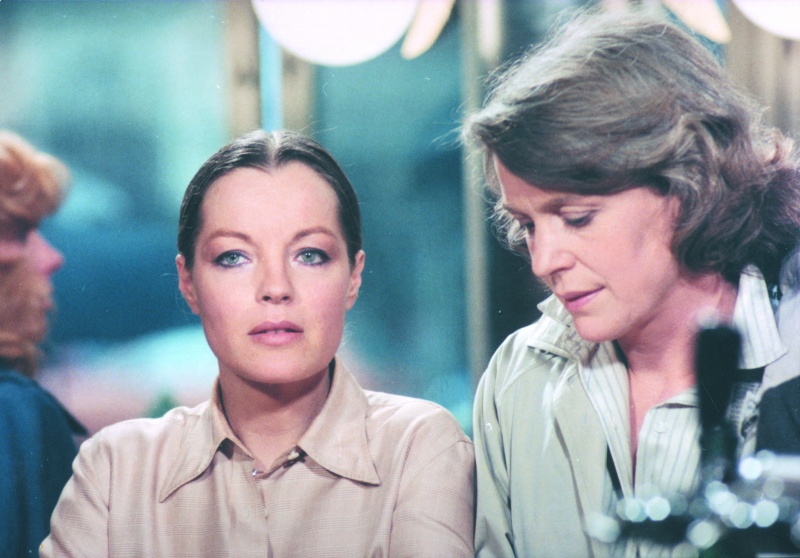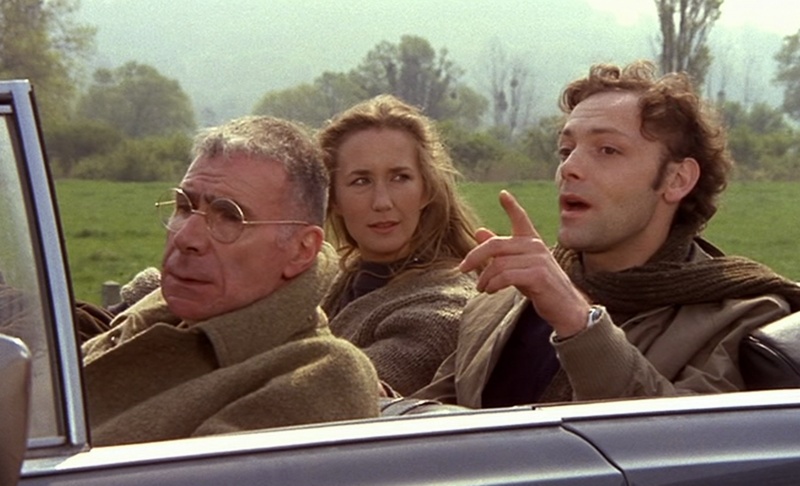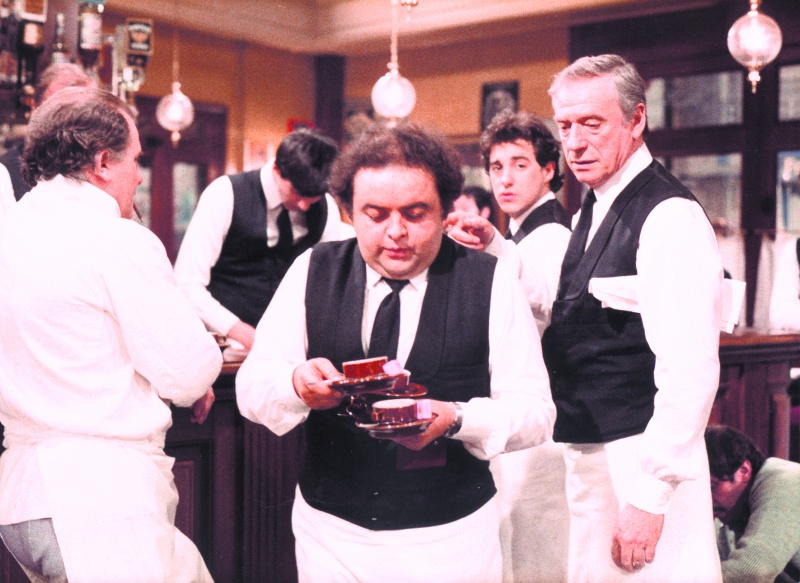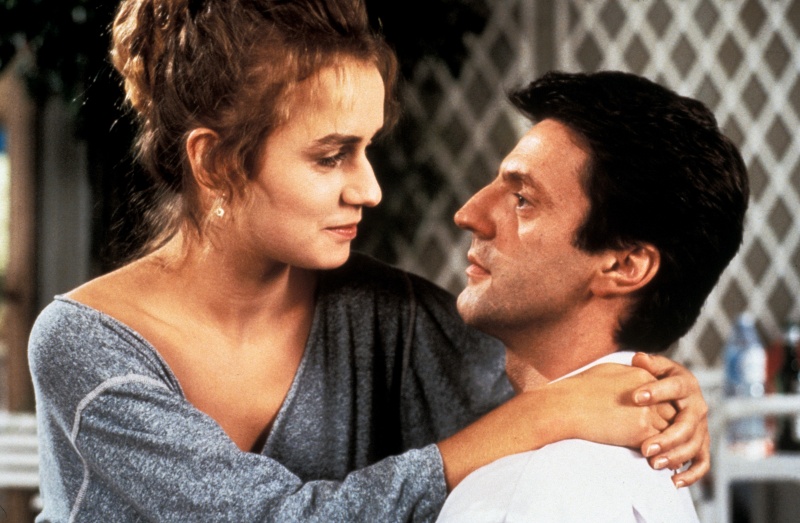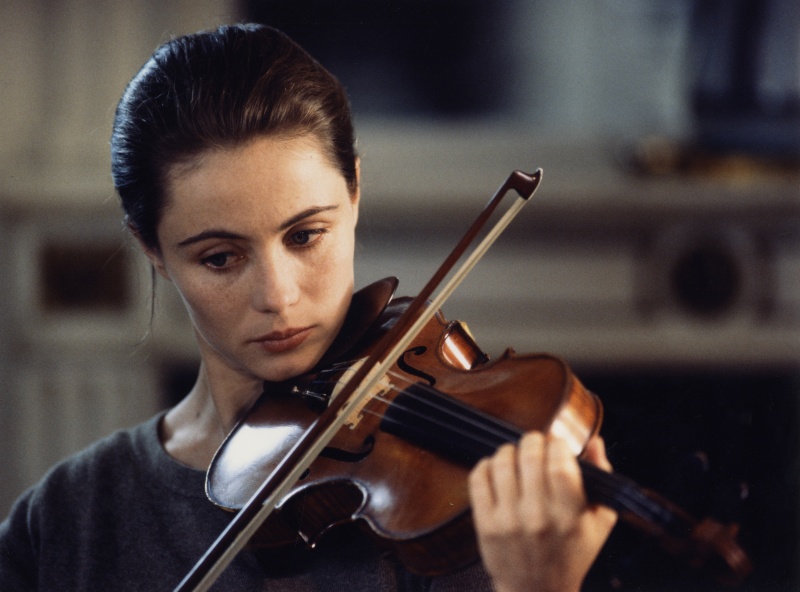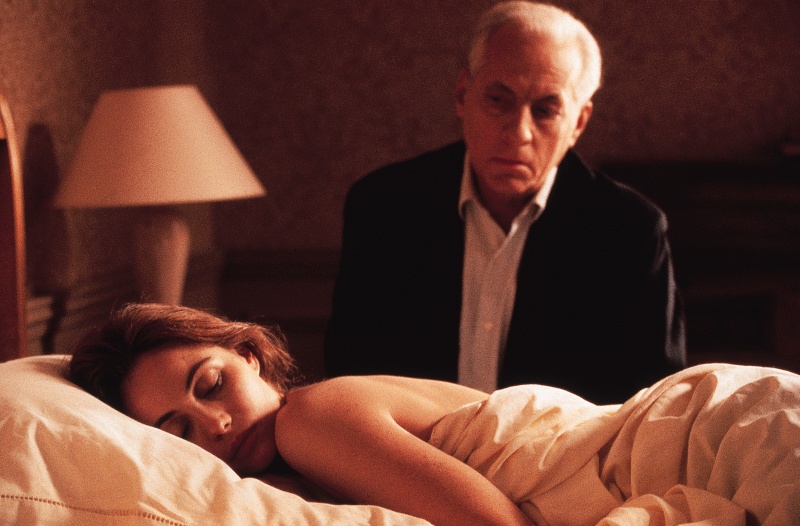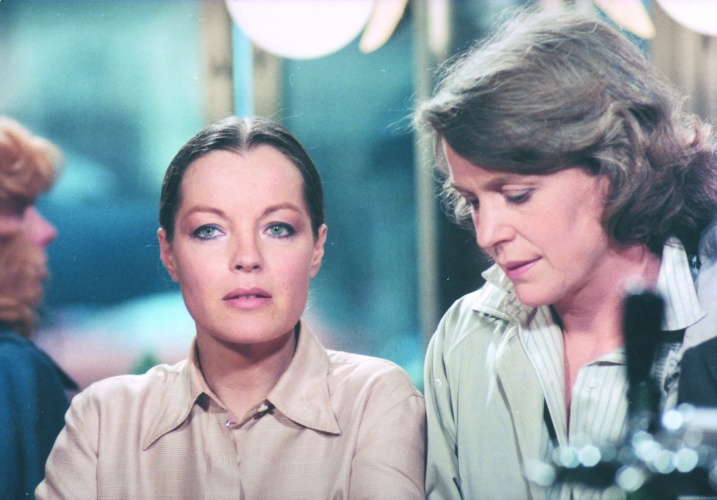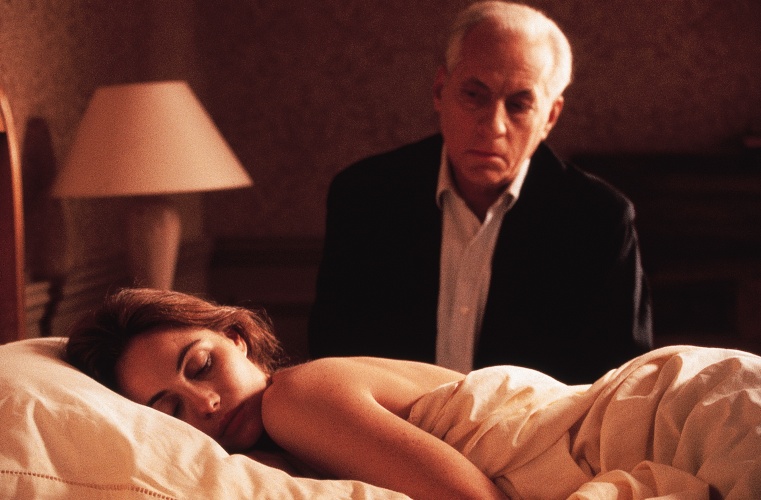The retrospective at San Sebastian Festival’s 70th edition will show thirteen features films directed by the French filmmaker Claude Sautet between the years 1956 and 1995. The season, organised in collaboration with the Filmoteca Vasca, will be completed with the book Conversations with Claude Sautet, a translation of the volume of interviews with the director by Michel Boujut.
The work was originally published by the Institut Lumière / Actes Sud in 1994 and came out in its final edition in 2014. The book has forewords by Thierry Fremaux, director of the Festival de Cannes and the Institut Lumière, and by the actor Daniel Auteuil, while the epilogue is signed by the filmmaker Bertrand Tavernier. A text has also been added written by Quim Casas, critic and member of the San Sebastian Festival selection committee, who sets the context for the figure of Sautet in Spain and at the San Sebastian Festival.
The poster for the retrospective is designed by Dimensión based on a photograph of Claude Sautet on the set of the movie Garçon! (1983).
A FILMMAKER AT THE CROSSROADS
Known for his collaborations with actors such as Romy Schneider, Michel Piccoli and Emmanuelle Béart, Claude Sautet placed himself at a comparative crossroads in the history of French cinema: he belonged to neither the post-war generation of moviemakers nor the Nouvelle Vague. Sautet, who was born in Montrouge in 1924 and died in Paris in 2000, took his first steps in the film industry of the 1950s as an assistant director, working on around a dozen films including comedies and crime stories produced by André Cerf, Edouard Molinaro and Richard Pottier. His most important film as an assistant was his last in the position, Les yeux sans visage (Eyes Without A Face, 1960) an influential work by Georges Franju in whose screenplay he also had a hand.
He had previously directed his first film, Bonjour sourire! (Hello Smile,1956), a musical comedy far removed from the works he would proceed to develop in the main body of his filmography. The peculiarity of this film is that it starred Henri Salvador, a hugely famous singer and guitarist who cultivated jazz, bossa nova, la chanson and rock'n'roll.
Sautet's early interests as a director soon veered towards polar detective movies, to which he contributed Classe tous risques (The Big Risk, 1960), starring one of the genre's best-loved tough guys, Lino Ventura, also based on a novel by another essential name in the world of French literature and gangster movies, José Giovanni.
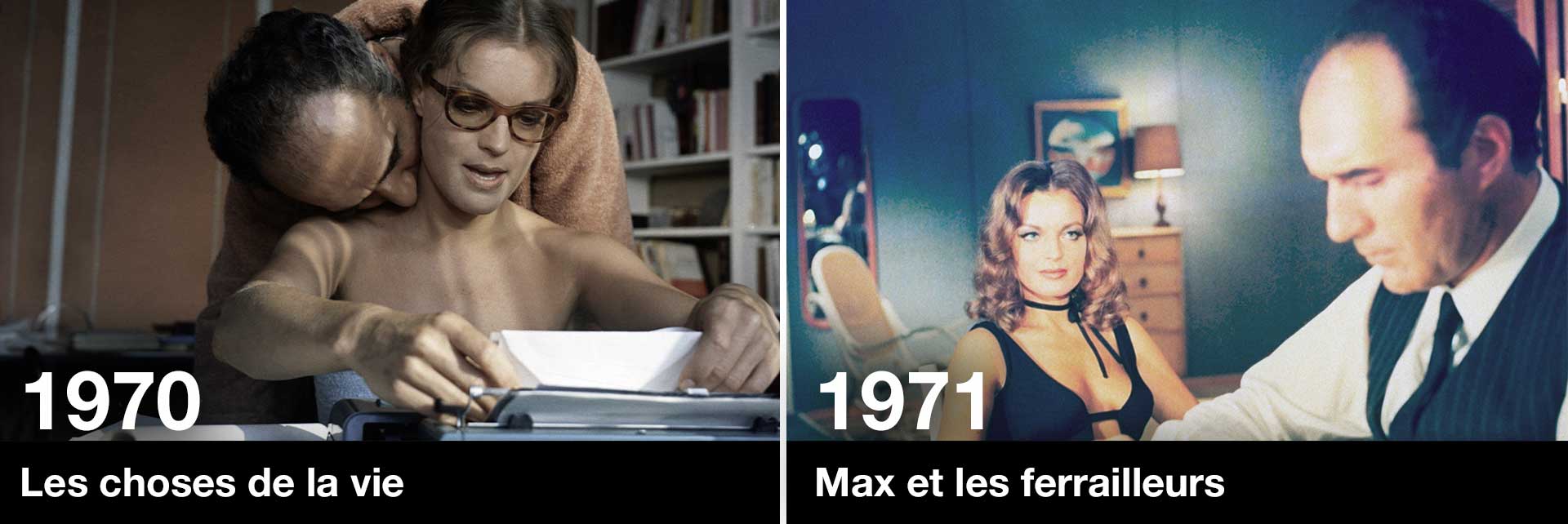
Sautet had already worked with Ventura a year previously on another polar, Le Fauve est lâché (The Tiger Attacks, 1959), in which he signed the screenplay and appears to have shot a number of sequences, despite the film only being credited to Maurice Labro. Those were the early days of the Nouvelle Vague, and although Sautet wasn't part of the movement, Jean-Paul Belmondo was there playing a criminal in Classe tous risques just as he had done in Jean-Luc Godard's À bout de souffle (Breathless, 1960).
Sautet maintained his links to gangster movies and José Giovanni on participating in the screenplay of Jacques Deray's Symphonie pour un massacre (Symphony for a Massacre, 1963), and in various other thrillers. He alternated his work as a screenwriter for others with the production and writing of his own movies, always within the genre, such as his new encounter with Lino Ventura in L'Arme à gauche (The Dictator's Guns, 1965), this time based on the novel by the North American Charles Williams.
Later, with the change of decade, Sautet entered the most prolific and popular period of his career thanks to the boost of Romy Schneider and Michel Piccoli, one of French cinema's most successful couples in the early 70s. His collaborations with the infallible acting twosome were Les choses de la vie (The Things of Life, 1970), where they provided two sides of a love triangle, and Max et les ferrailleurs (Max and the Junkmen, 1971), a different take on the police movie where Piccoli-Schneider maintained a love-hate relationship in the roles of detective and prostitute. Yves Montand joined the group as from César et Rosalie (César and Rosalie, 1972), with Schneider, and yVincent, François, Paul et les autres... (Vincent, François, Paul and the others, 1974), with Piccoli.
The success of this diptych-type take on the sentimental and existential crises of diverse middle-aged characters marked a new tone in Sautet's work. The drama darkened in Mado (1976), his last film with Piccoli; Une histoire simple (A Simple Story, 1978), his last collaboration with Schneider, and Garçon! (Waiter!, 1983), his last with Montand. All are films about the ups and downs of love and the notion of clinging to a last chance.
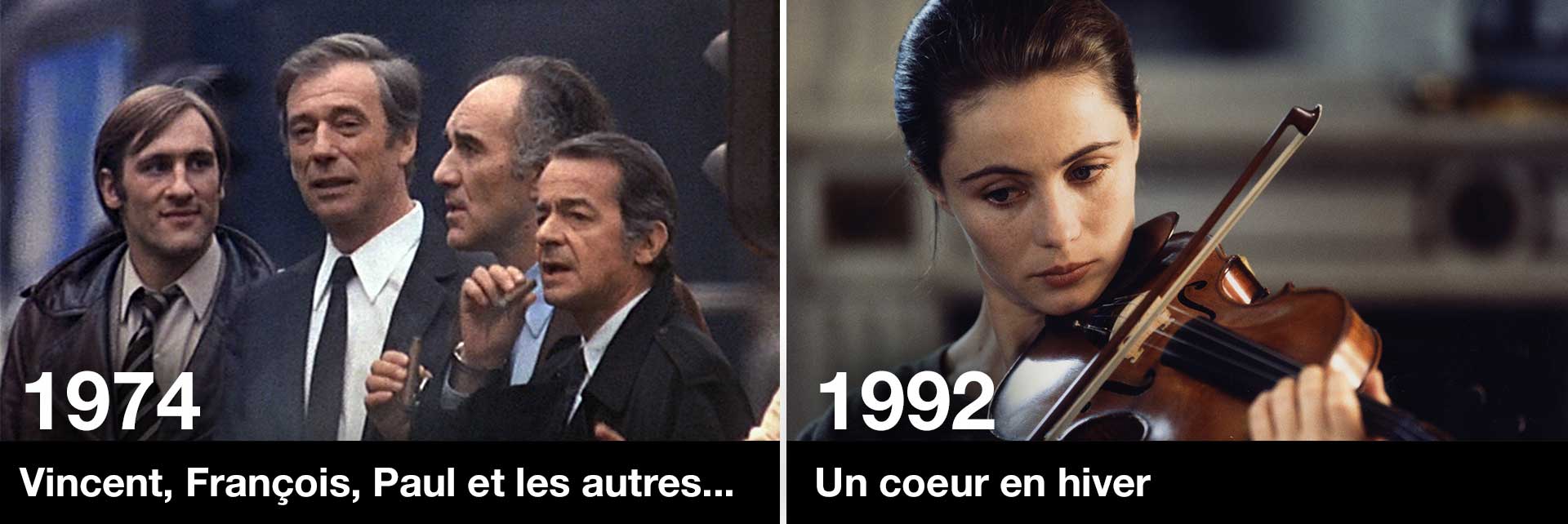
Sautet also made a drama following a drug addict as he recovers his emotions and his family in Un mauvais fils (1980), and a very different romantic tragicomedy, Quelques jours avec moi (1988), starring Sandrine Bonnaire and Daniel Auteuil, as well as returning the favour to Giovanni by writing the screenplay for Mon ami le traître.
He later found in Emmanuelle Béart a new actress who gave him the same confidence as he had enjoyed with Schneider and together they made his last two films Un coeur en hiver (A Heart in Winter,1992) and Nelly et Mr. Arnaud (Nelly & Monsieur Arnaud,1995), both delicate dramas about love triangles and unexpected attractions.
His last work was within the Collectif de cinéastes pour les sans-papiers, a group of 200 French directors, producers, exhibitors and distributors –including Sautet, Bertrand Tavernier, Jacques Audiard, Sólveig Anspach, Catherine Corsini, Laurent Cantet, Philippe Garrel, Lola Doillon and Alain Bergala– who signed their manifest as a short film in support of all undocumented immigrants in France, Nous, sans-papiers de France (1997).
In the principality of Monte-Marino, Aline, heiress to a throne, is depressed and bored to tears. The prime minister wants to make her smile again at all costs so that he can charm her, marry her and become king one day... He comes up with the idea of inviting a group of comedians to Monte-Marino. Claude Sautet always denied all connections with this film, considering his first movie to be Classe tous risques.
French skipper Jacques Cournot is enjoying some downtime on dry land in the Caribbean. One day, a man going by the name of Hendrix approaches him to ask for his expert opinion of a yacht, the Dragoon. The next day Cournot discovers that Hendrix has disappeared and the boat has been stolen.
Pierre, an architect, has a car accident. Thrown from the vehicle and lying semi-conscious on the side of the road, he remembers his past, his life with Hélène –a young woman he had planned to leave–, his ex-wife Catherine and his son.
Max, a police inspector determined to arrest a gang of amateur crooks, sets a trap to catch them redhanded.
Carryings-on, friendships and a love triangle between Rosalie, her new beau César, and David, her former lover.
Childhood friends Vincent, François, Paul and Armand, all in their fifties, meet in the countryside every Sunday with their families amidst lunches, walks and heated discussions.
Property developer Simon Léotard is ruined by Lepidon, a corrupt rival who demands that he repay the debts owed by his partner, who recently committed suicide. Thanks to Mado, a young prostitute he has fallen in love with, Simon takes revenge on Lepidon.
Marie is a 40-year-old divorcee and mother of a teenage son. Realising that she is pregnant by her new partner, she decides to leave him and have an abortion. When one of her friend's husbands loses his job, Marie asks her ex-husband to help him out.
After five years in an American jail for drug trafficking and consumption, Bruno returns to his father's house in France. The situation instantly becomes unsustainable when his father blames him and his imprisonment for his mother's death.
Alex, in his sixties, is the head waiter at a big Parisian brasserie. As he constantly comes and goes between the restaurant and the kitchens, between his friends and clients, Alex harbours his dreams, until the day he bumps into Claire, an old flame from seventeen years ago.
The son of a wealthy family, Martial is ill at ease with himself. The CEO of a supermarket chain, he jumps at a professional opportunity to take things a little slower. He moves to Limoges, where he causes all sorts of trouble in the life of the local bourgeoisie and in the heart of Francine, a young girl he invites to spend a few days with him...
Maxime and Stéphane are friends and work together in the pleasant atmosphere of a string instrument workshop. Maxime falls for a violin-player, Camille. The young woman is intrigued and exasperated by the personality of Stéphane, who seems to deny himself any kind of feelings. The three strike up a complicated relationship.
The meeting between Nelly, a young woman with no money in the process of getting a divorce, and Pierre Arnaud, an older man, wealthy and retired. He is writing his memoires and suggests that Nelly type them up.

